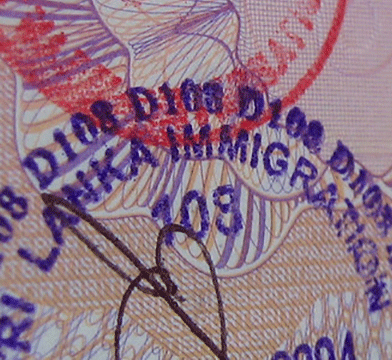Slavery and human trafficking statement
Our policies and actions to prevent slavery and human trafficking
The University of York has a zero tolerance to slavery and human trafficking. Its Code of Practice and Principles for Good Ethical Governance is followed when undertaking any academic activities. This is reinforced in the University’s Strategic Aims for delivering research for the public good. This Code gives particular consideration to activities conducted overseas or in collaboration with overseas partners, in countries or under regimes with poor human rights records or identified as unsafe or high risk by the Foreign & Commonwealth Office. The University remains alert to the potential for slavery and human trafficking within its domestic supply chain and also challenges itself to consider and assess more proximate risks.
Other policies and actions include:
- Ensuring that the recruitment of employees or workers or via agencies at the University and its subsidiary companies are subject to appropriate right to work checks and visa compliance.
- Having in place policies which allow communication and escalation of any risk of slavery or human trafficking (Speak Up (Public Interest Disclosure) policy (whistleblowing policy), Dignity at Work and Study policy, Employee grievance procedure).
- Carrying out appropriate due diligence of third parties supplying services and goods to the University.


Also, the University and its subsidiaries continue to identify and mitigate any risks of slavery or human trafficking arising from any supply chains or contracts. The University is working in collaboration with Netpositive Futures and has continued to embed an online supplier engagement tool, developed in conjunction with the Stockholm Environment Institute at York, which increases awareness of sustainability issues and allows us to:
- Establish a single mechanism to engage contracted suppliers with the issues of Modern Slavery.
- Provide support and guidance to our supply base and share best practice.
- Track the actions being taken and progress being made by our supply chain in addressing aspects of modern slavery.
In addition, the University is registered in its own right with the Netpositive supplier engagement tool as a provider of services to other organisations.
The University has signed up as a member of the Good Business Charter which includes ethical sourcing as one of its 10 components, aligning to the Ethical Trading Initiative Base Code.
Our teaching and academic research
Professor Tomoya Obokata, from the University of York’s Law School, is Special Rapporteur in contemporary forms of slavery appointed by the UN Human Rights Council and presents reports to the UN General Assembly. Our students collaborated with Professor Obokata on human rights placement projects from 2022/23 to 2024/25.
Supply Chain: Risk assessment, prevention and mitigation
The University perceives the main risk of slavery and human trafficking to be in the high spend supply chain areas of Property Management & Construction, IT, Laboratory Supplies and Catering. Through work on our supplier engagement tool we are addressing each area in turn to look at the strategies our supply chain has in place to ensure the risk of slavery and human trafficking is minimised.
For example, the following actions have taken place:
- Property Management & Construction: All timber related products procured by the University are Forest Stewardship Council (FSC) certified with full chain of custody meaning the timber and timber products are from suppliers who maintain or enhance the social or economic wellbeing of their workers.
- The University uses a number of framework agreements in the IT and electronic goods areas. The purchasing consortia who own these frameworks take active steps to mitigate the risk of abuses occurring in supply chains e.g. through the Sustain Supply Chain Code of Conduct. Many of the University’s suppliers of high volume, repeat purchases (such as laptops) are monitored by Electronics Watch for possible human rights abuses, working together with the Responsible Business Alliance.
- The purchasing consortium responsible for the framework agreements for laboratory consumables that the University uses has undertaken assessments of plans in place with suppliers to ensure all their supply chains are in accordance with the Ethical Trading Initiative Base Code.
- The University’s catering outlets and services continue to use Fair Trade and ethically sourced products. The University itself works with Pelican Procurement Services to source catering suppliers as it carries out a high level of due diligence (e.g. visiting premises) to ensure MSA 2015 compliance.
Due diligence processes
The University recognises that proper due diligence is essential to ensuring there is no human trafficking or slavery occurring in its supply chains. For that reason, it uses the NETpositive supplier engagement tool, and undertakes an engagement programme with its key suppliers in order to address the risks associated with modern slavery and the actions in place to mitigate these risks.
The University has adopted the Sustain Supply Chain Code of Conduct, developed and promoted by the UK Universities Purchasing Consortia (UKUPC), to demonstrate its commitment to carrying out procurement activities in a socially and ethically responsible manner. Section 1 of the code prohibits forced, involuntary or underage labour. This is now applied and expected of all of our successful tenderers when entering into agreements and contracts following a University-led invitation to tender.
Where the University is contracting directly it now employs the UKUPC goods and services agreement to ensure a sector-consistent approach; this includes anti-slavery and human trafficking clauses with an obligation to maintain a complete set of records to trace the supply chain of all Goods and/or Services provided.
As part of the University sustainability plan and to focus our efforts, a Kraljic matrix has been developed to identify the criticality of suppliers to the University and the most appropriate mechanisms for mitigating the risks inherent in those relationships. Modern slavery forms part of the “local and global supply chain forces” element of assessment.
Developments in 2024/25 and our future actions
- In 2024/25 training materials have been publicised and made accessible to University staff who make purchasing decisions to highlight the risks of slavery and human trafficking.
- In 2024/25 the University began to user test an introductory e-learning course on Modern slavery in business supply chains designed to recognise the risks associated with modern slavery that can be applied that learning to their decision making.
- In 2025/26 the e-learning course will be assigned to all key purchasing decision makers to complete in the coming year.
- In 2024/25 the University conducted an audit of the catering supply chain in conjunction with Avendra International, reviewing their suppliers’ reporting under the Modern Slavery Act 2015 to establish a baseline of their approach to modern slavery training to determine the steps taken to mitigate the risk of slavery and human trafficking occurring.
- In 2025/26 the University’s future catering supply agreement will have KPIs focussed upon supply chain integrity including modern slavery mitigation.
- Building on the work undertaken by Electronics Watch in 2025/26 the University will carry out an assessment of its cyclical laptop replenishment to determine the steps taken to mitigate the risk of slavery and human trafficking occurring.

This statement will be reviewed annually to monitor progress in minimising the risk of slavery and human trafficking occurring in any part of the University’s supply chains or core operations. Any queries regarding this statement should be addressed to sustainability@york.ac.uk.
Professor Charlie Jeffery, Vice-Chancellor and President
January 2026
